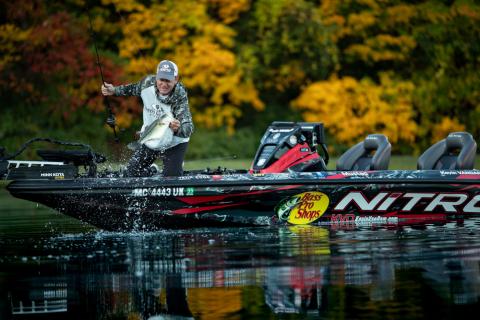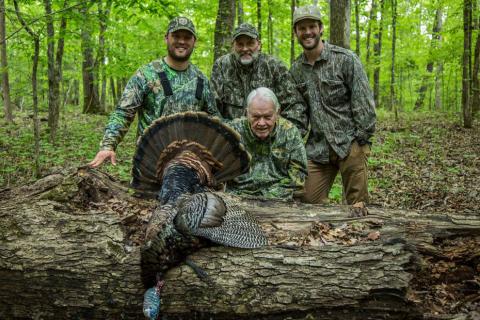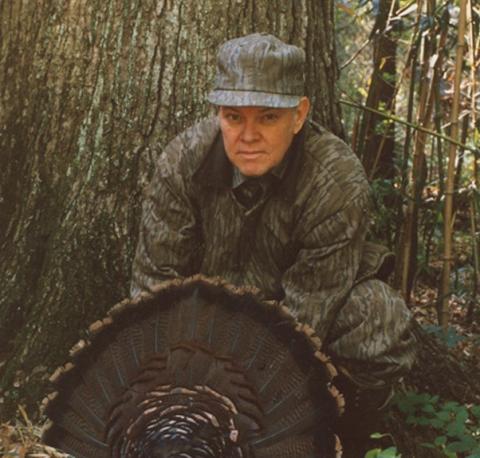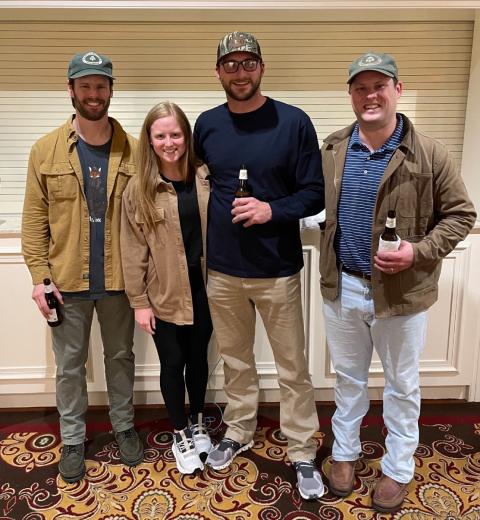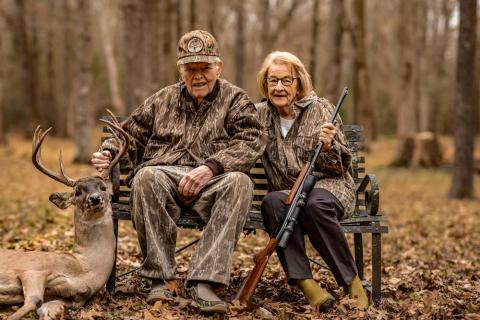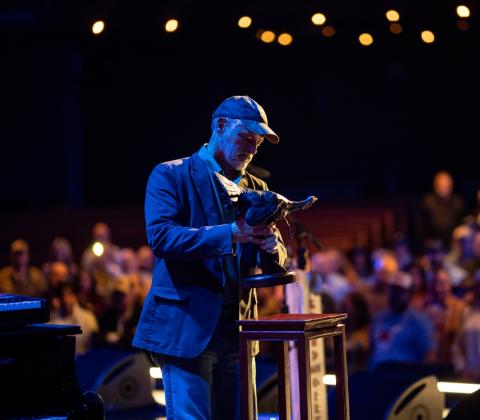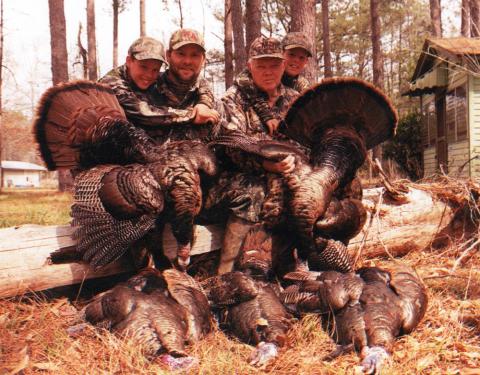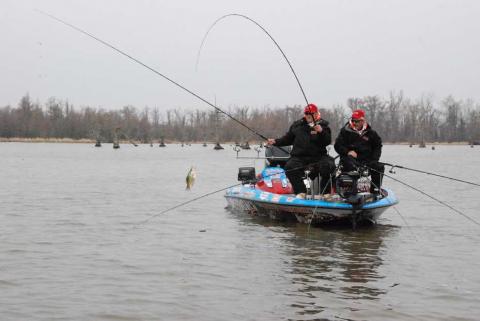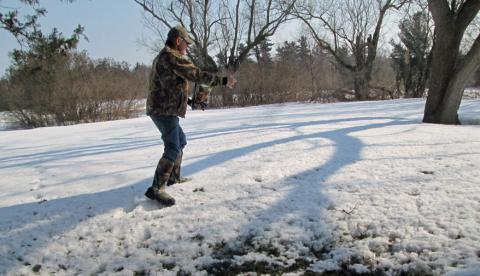provided by John E. Phillips
The Alabama Adult Mentored Turkey Hunting Program I attended recently had expert help from two Mossy Oak Pros on what equipment turkey hunters needed. Mossy Oak Pro T.R. Pate of Tuscaloosa, Alabama, is the classic example of why there’s a need for an adult mentoring program to learn how to hunt turkeys.
“When I first started turkey hunting, I didn’t have the advantage of a program like this to learn to hunt turkeys,” said Pate. “So, I hunted for three years and never got a shot at a turkey.”
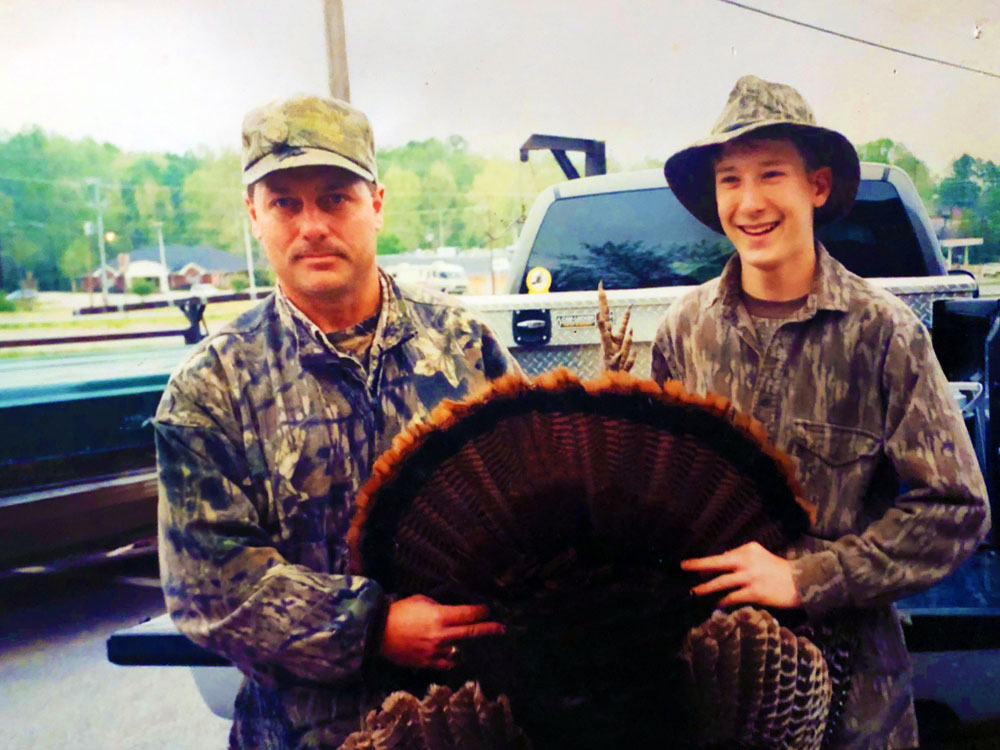
According to Chuck Sykes, Director of the Wildlife Division of Alabama’s Department of Conservation, “Although our state and others offer youth seasons and programs to take young people hunting, we’ve found that if we can teach the adults how to hunt turkeys, they’re much more likely to teach their children and take their children hunting with them each season.”
Chris Westen of Gadsden, Alabama, is another Mossy Oak Pro who gave up his Saturday to teach adults the equipment they needed to be successful turkey hunters, and shared his thoughts and beliefs on what helped him become a successful turkey hunter. These Mossy Oak Pros share what they have learned that has helped them become seasoned veteran turkey hunters and learn to help other turkey hunters.
“I’ve learned a lot, and I learn even more every year I turkey hunt,” Pate said. “The 2020 season was a very different year for me because I didn’t have the opportunity to squeeze my trigger on a turkey. That’s not necessarily a bad thing - not everyone takes a turkey every year, and not everyone who hunts turkeys takes their limit of five turkeys every year. When I first started turkey hunting, I didn’t have the advantage of a program like this Adult Mentored Hunting Program to learn to hunt turkeys. I hunted for three years primarily by myself and never got a shot at a turkey. Eventually I found a fellow who said he would teach me how to turkey hunt. I had turkeys on my property, so I jumped at the chance to have a mentor.
“On our first hunt, after we heard a turkey gobble, my friend told me, ‘We need to reposition and get to the spot where I think the turkey will come out on the gas line.’ We made a big circle around and got out on the gas line. I stayed behind my friend. He reached the edge of the gas line, and when the turkey stepped out, he shot him. I can laugh about that happening now, but that was my first experience with having a mentored hunt. That hunt didn’t work out nearly as well for me as what folks learn today at the state’s Adult Mentored Hunting Program. Since I went through that experience, I knew I’d never shoot a turkey while mentoring a new turkey hunter. Actually, I get just as much satisfaction, if not more, watching a person who never has taken a turkey bag his or her first longbeard.
“I’ve never found a turkey hunter that I haven’t liked. You have to not only understand the turkeys, but the turkey hunters too where you hunt. If I’m hunting at a WMA and meet another turkey hunter, he’s probably not going to tell me where he’s heard a turkey. On public land, if I find a truck parked where I want to hunt, I’ll probably go 100-200 yards away from that truck - well away from the other hunter. Turkey hunters often cover a lot of ground to find a gobbling bird or to turkey sign.”
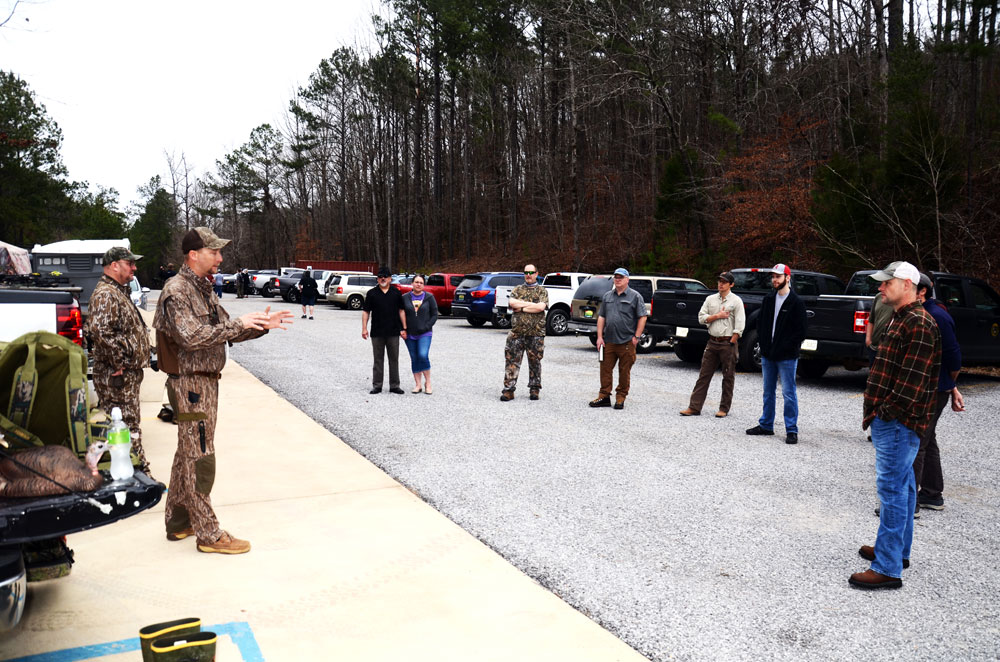
“I’m 51 years old, and I’ve been hunting turkeys for what seems like 100 years, but in reality, it’s only been about 40 years,” Chris Westen said. “I started out hunting turkeys with my dad and got addicted to hunting turkeys at a very young age.
“The first thing turkey hunters need to understand is that public land is a completely different type of hunting than hunting turkeys on private land. I hunt private land almost exclusively, but T.R hunts private land and public land. There’s a comradery - a brotherhood - between turkey hunters. I first started turkey hunting with two or three buddies. Each of us tried to give our suggestions as to where we thought the turkey should be when we heard him gobbling, what direction we should walk in to get close to that turkey (but not too close that we spooked him), what type of calls we should use, and what the turkey might be doing as he came to us. When we had a bird coming in, who shot the bird really didn’t matter because we’d had a chance to hunt that bird together. Hunting with buddies made the hunt much more fun for the three of us.
“Yes, T. R. and I are teaching this course on turkey-hunting equipment for Alabama’s mentoring program, but we’ll also be a constant resource for our students. You’ll have our contact information. As mentors, we want to be resources to help you learn and enjoy turkey hunting as much as we do. So, don’t hesitate to contact us.”
You can email Chris Westen at and T.R. T.R also has a Facebook page, Alabama Turkey Hunters, with 10,000 members. He gives away turkey calls to people who can’t afford them or to young children who are interested in learning to call turkeys. Whether you are a new turkey hunter or a veteran turkey hunter, sooner or later you’ll encounter a turkey that beats you every time you try and take him. That’s when having a help line is so important to learn suggestions on different strategies that may help you take that bad bird that beats you every time you’re hunting.
















